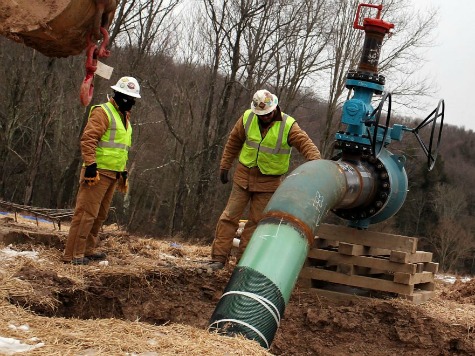
On Friday, the Energy Department reported that preliminary results of a landmark study of hydraulic fracturing, or tracking, found that the chemicals used in the process didn’t pollute the higher-up ground water. The study was conducted in Western Pennsylvania, which shares the Marcellus Shale formation with several other states. It could lead to a new burst of oil and gas production in the region.
Since the introduction of the fracking process, which injects water and chemicals deep underground to access reserves of oil and natural gas, environmentalists have speculated that some chemicals could rise through the ground and pollute natural aquifers that provide drinking water. The study shows those fears are largely unfounded.
In the study, researchers placed unique tags on fracking chemicals. They injected them 8,000 feet below the surface in a fracking mine and then monitored the chemicals with sensors placed 5,000 feet below the surface. No chemicals were detected, indicating that the chemicals remained almost a mile below ground level. Most aquifers are 500-1000 feet below ground level.
“This is good news,” said Duke University scientist Rob Jackson, who was not involved with the study. Calling it a “useful and important approach” to monitoring fracking, Jackson also cautioned that the single study doesn’t prove that fracking can’t pollute, since geology and industry practices vary widely in Pennsylvania and across the nation.
A poorly designed or engineered well could potentially cause some pollution. If chemicals used in fracking are mishandled at the surface, it could cause some ground contamination. The study, however, shows that the basic process used to extract valuable oil and gas reserves, if done properly, poses no health or safety risk.
Environmentalists had warned that the process itself would cause contamination of ground water. The study released Friday should erase those fears.

COMMENTS
Please let us know if you're having issues with commenting.